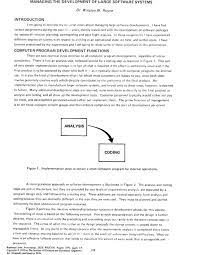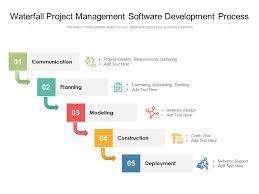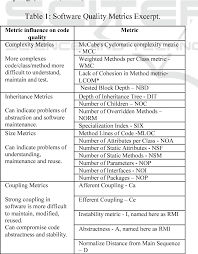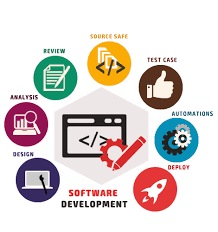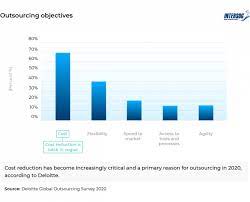Empowering Growth: The Journey to Continuous Development
The Importance of Continuous Development in Today’s World
In a rapidly evolving world, the concept of development has become more crucial than ever before. Whether it’s personal growth, professional advancement, or technological innovation, the need to develop and adapt is essential for success.
Personal Development
Personal development involves self-improvement and lifelong learning. It encompasses various aspects such as acquiring new skills, expanding knowledge, enhancing emotional intelligence, and fostering healthy habits. Continuous personal development leads to increased self-awareness, confidence, and resilience.
Professional Development
Professional development is vital for career growth and staying competitive in the job market. It involves honing existing skills, acquiring new ones, and staying updated with industry trends. Continuous professional development opens up opportunities for advancement, increases job satisfaction, and boosts overall performance.
Technological Development
Technological development drives innovation and progress in various fields. From software advancements to medical breakthroughs, continuous technological development shapes the way we live and work. Embracing technological advancements allows individuals and organizations to stay ahead of the curve and remain relevant in a rapidly changing world.
The Benefits of Continuous Development
- Growth: Continuous development fosters personal growth, career advancement, and innovation.
- Adaptability: Developing new skills and knowledge enhances adaptability to change and challenges.
- Competitiveness: Continuous development keeps individuals and organizations competitive in their respective fields.
- Fulfillment: The process of continuous development leads to a sense of fulfillment and accomplishment.
- Innovation: Embracing continuous development fuels creativity and drives innovation.
In conclusion, continuous development is not just a choice but a necessity in today’s fast-paced world. By prioritizing personal growth, professional advancement, and technological innovation through continuous learning and adaptation, individuals and organizations can thrive amidst constant change and uncertainty.
7 Essential Tips for Successful Development Projects
- Set clear and achievable goals for your development projects.
- Stay organized by creating a detailed plan before starting any development work.
- Regularly test and debug your code to ensure its quality and functionality.
- Seek feedback from others to improve your development skills and learn new techniques.
- Stay updated with the latest technologies and trends in the field of development.
- Collaborate with other developers to share knowledge and work on projects together.
- Take breaks when needed to prevent burnout and maintain productivity.
Set clear and achievable goals for your development projects.
Setting clear and achievable goals for your development projects is essential for success. By defining specific objectives and milestones, you provide a roadmap that guides your progress and keeps you focused. Clear goals help you measure your achievements, track your development, and stay motivated throughout the project. Additionally, achievable goals ensure that you set realistic expectations and avoid becoming overwhelmed by unattainable targets. By establishing clear and achievable goals, you create a framework for effective planning, execution, and ultimately, successful project completion.
Stay organized by creating a detailed plan before starting any development work.
Staying organized is key to successful development work. By creating a detailed plan before diving into any project, you set a clear roadmap that helps you stay focused and on track. A well-thought-out plan allows you to allocate resources efficiently, anticipate potential challenges, and establish realistic timelines for completion. This proactive approach not only streamlines the development process but also ensures that your efforts are directed towards achieving your goals effectively.
Regularly test and debug your code to ensure its quality and functionality.
Regularly testing and debugging your code is a critical practice to uphold the quality and functionality of your software. By conducting thorough testing procedures, you can identify and rectify any errors or issues within the code, ensuring that it operates smoothly and efficiently. Debugging allows you to pinpoint and resolve bugs, enhancing the overall performance and reliability of your application. Consistent testing and debugging not only improve the user experience but also contribute to the long-term success of your development projects.
Seek feedback from others to improve your development skills and learn new techniques.
Seeking feedback from others is a valuable strategy to enhance your development skills and acquire new techniques. Constructive feedback provides insights into areas for improvement and helps you gain a fresh perspective on your work. By actively seeking feedback from peers, mentors, or experts in the field, you can identify blind spots, refine your approach, and accelerate your learning process. Embracing feedback as a tool for growth allows you to continuously evolve and stay at the forefront of your development journey.
Stay updated with the latest technologies and trends in the field of development.
To stay ahead in the field of development, it is essential to stay updated with the latest technologies and trends. By keeping abreast of new advancements, tools, and best practices, developers can enhance their skills, remain competitive, and deliver innovative solutions that meet the evolving needs of users and businesses. Continuous learning and staying informed about industry trends not only enriches one’s expertise but also ensures relevance and success in a rapidly changing technological landscape.
Collaborate with other developers to share knowledge and work on projects together.
Collaborating with other developers to share knowledge and work on projects together is a valuable tip for personal and professional development. By engaging in collaborative efforts, developers can leverage each other’s expertise, learn new skills, and tackle complex projects more effectively. This collaborative approach not only enhances individual growth but also fosters a sense of community within the developer ecosystem, leading to innovative solutions and collective success in the ever-evolving tech industry.
Take breaks when needed to prevent burnout and maintain productivity.
Taking breaks when needed is essential to prevent burnout and sustain productivity. In today’s fast-paced world, it can be tempting to push ourselves to the limit without giving our minds and bodies a chance to rest. However, incorporating regular breaks into our work routine allows us to recharge, refocus, and maintain a high level of productivity in the long run. By listening to our bodies and taking breaks when necessary, we can avoid burnout, improve our overall well-being, and achieve greater success in our endeavors.






